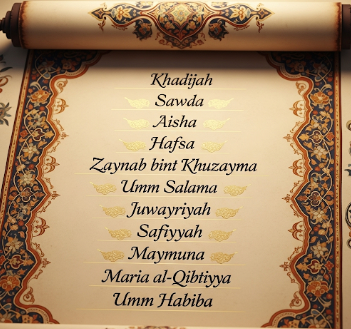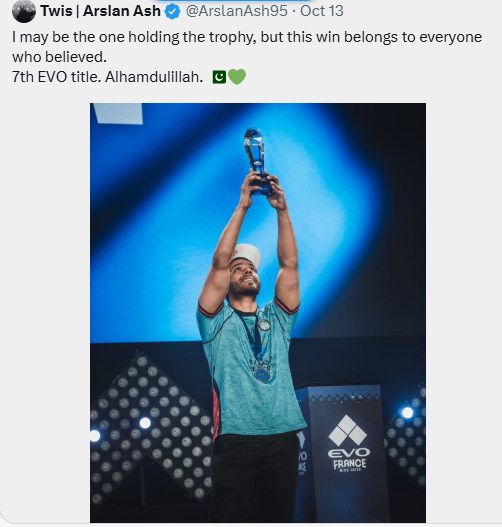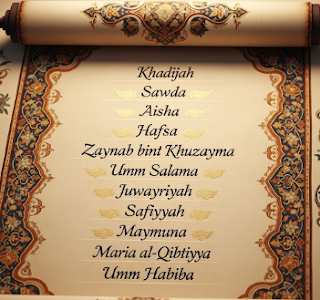Marriages of Prophet Muhammad (PBUH): History, Reasons, and Wisdom (Part I)
Muslims all across the world find inspiration, social, financial and personal guidance in the life of Prophet Muhammad (PBUH). The marriages between Prophet Muhammad (PBUH) and his honorable wives, referred to as the Mothers of the Believers, are among the many significant facets of his fortunate life.
Every marriage teaches important lessons about social responsibility, faith, patience, and compassion. First six wives of Prophet Muhammad (PBUH) are listed in detail in this article, along with information about their names, biographies, and the historical setting of their marriages. The rest will be in shared in the next part of the article.
1. Prophet Muhammad (PBUH) and His Marriage to Hazrat Khadijah (RA):
Beginning of Relationship:
After some time, when Prophet Muhammad (PBUH) stopped grazing goats and started grazing camels, he and his companion used to rent out their camels to people. People would pay them for the service.
One time, Hazrat Khadijah’s (RA) sister rented their camels. After the journey was finished, there was still some money left. Prophet Muhammad’s (PBUH) companion asked him to come along to ask for the remaining rent. But Prophet Muhammad (PBUH) said,
“I feel shy to ask for the rent myself. You go alone.”
So, his companion went and met Hazrat Khadijah’s sister. She asked him:
“Where is your other companion? Where’s Muhammad?”
Hazrat Khadijah’s sister replied:
“I have never seen a man so modest and pure like him.”
The Marriage Proposal:
When Hazrat Khadijah (RA) heard about this whole incident and how Prophet Muhammad (PBUH) behaved, she felt love in her heart for him and sent a message proposing marriage. Receiving the proposal and a request to meet, Prophet Muhammad (PBUH) went to meet her. She asked him to go to her father and propose marriage. Prophet Muhammad (PBUH) said:
“Your father is rich. He wouldn’t do that.”
She assured him by saying:
“Go and meet him. I’ll handle the rest.”
Hazrat Ibn-e-Abbas, a companion of Prophet Muhammad (PBUH), says that Hazrat Khadijah’s father initially didn’t agree to the marriage. Hazrat Khadijah handled it with grace, intellect, and foresight according to the norms of the time. She hosted a lunch for her father and also invited a few people of her tribe. Quraish was a prominent and powerful Arab tribe of the time that inherently controlled the Kaaba and Mecca. She belonged to an aristocratic clan, Banu Asad of Quraish.
Securing Her Father’s Consent:
According to the custom of the time, her father and others drank liquor after food and would drink until they lost their consciousness. As that happened, Hazrat Khadijah told her father about the proposal and asked for his consent. He agreed.
Hearing this, she dressed her father and perfumed him with “Khalooq.” This was the tradition of the time to prepare fathers for marriage. When her father got sober and noticed what had happened, he got furious and refused to accept the marriage. Hazrat Khadijah (RA) asked him if he was going to make a fool of himself in the presence of other Quraish members. She kept explaining to him till he understood and agreed to the marriage.
Children:
At the time of marriage, Prophet Muhammad (PBUH) was 25 years old, while Hazrat Khadijah (RA) was 40 years old. She was born 15 years before the Year of the Elephant.
Allah blessed Prophet Muhammad (PBUH) and Hazrat Khadijah (RA) with seven children:
Three sons — Al-Qasim, Abdullah, and Ibrahim.
Four daughters — Zainab, Ruqayyah, Umm Kulthum, and Fatima.
Among them, Hazrat Fatimah (RA) holds a special place in Islamic history as the mother of Imam Hasan (RA) and Imam Hussain (RA). She is also known as “Sayyidat Nisa al-Jannah (Mistress of the women of Paradise)”.
2. Prophet Muhammad (PBUH) and Hazrat Sawdah bint Zam‘ah (RA): Comfort After Grief:
Death of Hazrat Khadijah (RA):
After the passing of Hazrat Khadijah (RA), the Prophet (PBUH) endured deep sorrow. The companions encouraged him to remarry for companionship and family support. Hazrat Ayesha (RA) narrates that after the death of Hazrat Khadijah (RA), the disciple of Prophet Muhammad (PBUH), Hazrat Khawlah bint Hakim, asked him if he would get married again. Prophet Muhammad (PBUH) asked:
“Whom should I marry?”
Hazrat Khawlah bint Hakim replied:
“If you want, a widow; and if you want, a virgin.”
Prophet Muhammad (PBUH) enquired:
“Who is the virgin?”
“Daughter of the one you love the most from Allah’s creations (Hazrat Abu Bakr (RA)), Hazrat Ayesha (RA).”
“And who is the widow?”
“Who has accepted your religion and believed in you, Hazrat Sawdah bint Zam’ah.”
“Okay. Go and mention me to both of them.”
Proposal and Consent:
When Hazrat Khawlah met Hazrat Sawdah, she was reluctant because she already had six children and worried that they would bother Prophet Muhammad (PBUH). Prophet Muhammad (PBUH) married Hazrat Sawdah in the month of Ramadan of the tenth year following the beginning of his prophetic career, shortly after Hazrat Khadijah’s passing. Hazrat Muhammad (PBUH) persuaded her by stating:
“The virtuous women of the Quraysh, who are the most affectionate toward small children and the most excellent in doing good to their husbands when they [the women] are wealthy, are the best women who have ever ridden the backs of camels.”
Another narration states that when Hazrat Khawlah bint Hakim reached her father to obtain his consent, he said:
“He is a very good and devoted husband. But ask your friend also. Take her consent.”
Hazrat Sawdah (RA) had already agreed, so the marriage took place in the presence of her father.
Reason:
Hazrat Sawdah (RA) was a widow known for her kind and cheerful nature. She married the Prophet (PBUH) during this difficult time, bringing comfort to his household. Later, her marriage became a source of lessons in generosity and humility. She was known for her humor and for donating her wealth to charity.
3. Prophet Muhammad (PBUH) and Hazrat Aisha bint Abi Bakr (RA): Knowledge and Wisdom:
The Proposal to Hazrat Ayesha:
Hazrat Khawlah bint Hakim came to Hazrat Ayesha’s house and told her mother, Hazrat Umm Ruman (RA), about the proposal. Her mother said:
“I agree, but wait for my husband, Hazrat Abu Bakr (RA); he is about to come.”
When Hazrat Abu Bakr (RA) arrived, Hazrat Khawlah bint Hakim told him about the proposal. He asked:
“Prophet Muhammad (PBUH) is my brother, so she is his niece. Is this possible?”
Hazrat Khawlah bint Hakim returned to Prophet Muhammad (PBUH) and explained Abu Bakr’s concern. The Prophet (PBUH) clarified:
“We are brothers in Islam. It is not a relation by blood. So, it’s possible.”
She went back and informed Hazrat Abu Bakr (RA). He listened, told her to wait, and went outside. Hazrat Umm Ruman (RA) explained that he had gone to Mut‘im bin ‘Adi, who had already sent a proposal for his son Jubair for Ayesha (RA), which Hazrat Abu Bakr (RA) had promised. He went to ask them about their final decision since he couldn’t go against his promise. At Mut‘im’s house, they said something that made it necessary not to fulfill the promise. This bought relief.
The Marriage Ceremony:
Hazrat Abu Bakr (RA) returned and told Hazrat Khawlah bint Hakim to call Prophet Muhammad (PBUH). Hazrat Ayesha and the Prophet (PBUH) were then married in nikah. She was six at this time.
Hazrat Ayesha (RA) further narrated that later, one day, Prophet Muhammad (PBUH) came to her house. A hammock was tied to a tree trunk with a rope, and she was swinging in it. Her mother took her down, washed her face, fixed her hair, and made her sit next to Prophet Muhammad (PBUH), saying:
“Here she is, your wife.”
This is how they got married and began living together. She was nine at that time.
Reason:
Hazrat Aisha (RA), the daughter of Abu Bakr Siddiq (RA), was among the most knowledgeable women in Islamic history. She married the Prophet (PBUH) in Madinah and became a source of deep learning and wisdom for the Muslim community.
She narrated over 2,000 hadiths and was frequently consulted by companions on matters of religion, law, and daily life. Her sharp memory and intelligence made her one of the most respected teachers of Islam. Through her, many details of the Prophet’s personal life, character, and family interactions were preserved.
Her marriage reflects the importance of women’s role in education and scholarship in Islam.
Related: Marriages of Prophet Muhammad (PBUH)-Part II
4. Prophet Muhammad (PBUH) and Hazrat Hafsah bint Umar (RA): Perseverance and Piety:
Background and Proposals:
Hazrat Hafsa (RA) was the daughter of the second Caliph, Hazrat Umar (RA). She was the widow of Hazrat Khunais bin Huzafa. After his death in Medina, Hazrat Umar sent her proposal to Hazrat Uthman (RA), the third Caliph and companion of the Prophet (PBUH). He asked for some time to think and later refused the proposal.
After that, Hazrat Umar sent her proposal to Hazrat Abu Bakr (RA), the first Caliph, companion, and father-in-law of the Prophet (PBUH). He remained quiet and didn’t answer.
The Prophet’s Proposal and Marriage:
A few days later, the Prophet Muhammad (PBUH) himself sent the proposal for Hazrat Hafsa (RA). Hazrat Hafsa (RA) agreed, and the knot was tied. Later on, Hazrat Abu Bakr (RA) explained why he remained quiet: he had heard the Prophet (PBUH) mentioning his will to marry Hazrat Hafsa (RA) and didn’t want to reveal the secret.
Another narration states that Hazrat Umar (RA) complained to Prophet Muhammad (PBUH) about Hazrat Uthman (RA), saying:
“I wanted my daughter to marry him, but he is refusing to accept.”
The Prophet (PBUH) replied:
“Hafsa will get married to a better man than Uthman, and Uthman will get married to a better woman than Hafsa.”
That happened: Hazrat Hafsa (RA) married Prophet Muhammad (PBUH), and Hazrat Uthman (RA) married the Prophet’s daughter.
Reason:
Hazrat Hafsah (RA), the daughter of Umar ibn al-Khattab (RA), was widowed at a young age before marrying the Prophet (PBUH). This marriage highlights Islam’s care and dignity for widows, showing how the Prophet (PBUH) supported them.
Hazrat Hafsah (RA) was entrusted with the manuscript of the Qur’an after the Prophet’s passing, which was later used by Caliph Uthman (RA) to produce the standard copies of the Qur’an. Her life is a reminder of patience in hardship and the honor of preserving knowledge.
5. Prophet Muhammad (PBUH) and Hazrat Zaynab bint Khuzaymah (RA): Compassion and Care:
Her Background:
Hazrat Zainab bint Khuzayma (RA), one of the Prophet’s (PBUH) noble wives, is renowned for her generosity and is also known as “Umm al-Masakeen” (Mother of the Poor). Her first husband, Abdullah ibn Jahsh (RA), was martyred at the Battle of Uhud, leaving her a widow.
The Marriage:
The Prophet Muhammad (PBUH) married her in the third year of Hijrah (3 AH) as a sign of respect and to ensure she would not be abandoned. Like his other wives, he paid a dowry of 400 dirhams to Hazrat Zainab (RA). She continued her charitable nature after becoming the Prophet’s wife.
Her Passing:
Sadly, her marriage lasted only two or three months, as she passed away at a young age. She was the second wife of the Prophet (PBUH) to pass away during his lifetime (after Hazrat Khadijah RA).
Reason:
Her marriage to the Prophet (PBUH) lasted only a short time before her passing, yet her reputation as a compassionate helper of the poor remains unmatched. She reminds us that marriage in Islam is not only about companionship but also about supporting social responsibility.
6. Prophet Muhammad (PBUH) and Hazrat Umm Salamah (RA): Patience and Leadership:
Tragedy and Dua:
One of the Prophet’s (PBUH) most revered wives, Hazrat Umm Salama (RA), led a life filled with endurance, selflessness, and trust in Allah’s plan. After the Battle of Uhud, she lost her beloved husband, Abu Salama (RA), and was left alone with small children. She recalled the Prophet’s advice:
The Proposal and Marriage:
Not long after, Prophet Muhammad (PBUH) himself made an extraordinary marriage proposal. Umm Salama (RA), humbled and shocked, voiced her worries in the following words:
“I am an elderly woman, O Messenger of Allah. I am incredibly jealous, and I have many children.”
In response, the Prophet (PBUH) was kind and reassuring:
“I will ask Allah to remove your jealousy. I am older than you. Your children will be my children.”
Umm Salama (RA) recognized this proposal as a favor from Allah. She told her son, Umar, to prepare for her wedding. He did so, and she gained love, respect, and honor in the Muslim Ummah after becoming one of the Mothers of the Believers.
After her marriage with Prophet(PBUH), she gave birth to daughter of Abu Salama (RA). She was given the name ZAINAB. Prophet Muhammad (PBUH) would pick her and played with her and often lovingly called her “Zanab.” Prophet Muhammad (PBUH) therefore maintained and fulfilled His promise of caring for her children as His own.
Reason:
She was one of the longest-living wives and played an important role in advising companions. During the Treaty of Hudaybiyyah, she gave wise counsel to the Prophet (PBUH) when companions hesitated to follow instructions — showing the importance of consulting women in leadership matters.
Her marriage is a lesson in patience, resilience, and the value of wise counsel.
References:
- Ibn Sa‘d, Kitab al-Tabaqat al-Kabir
- Hayat us Sahaba by Molana Muhammad Ehsan ul Haq
- Ibn Hisham, Sirat Rasul Allah
- Sahih al-Bukhari, Kitab al-‘Ilm
- Ibn Sa‘d, Kitab al-Tabaqat al-Kabir








![Humaira Asghar Ali Biography – Latest News Today [Updated October 2025]](https://readanica.me/wp-content/uploads/2025/07/humaira-asghar-ali-biography-death-career-1317693753.png)
Nice 👍
👍👍
Such an amazing and informative content .